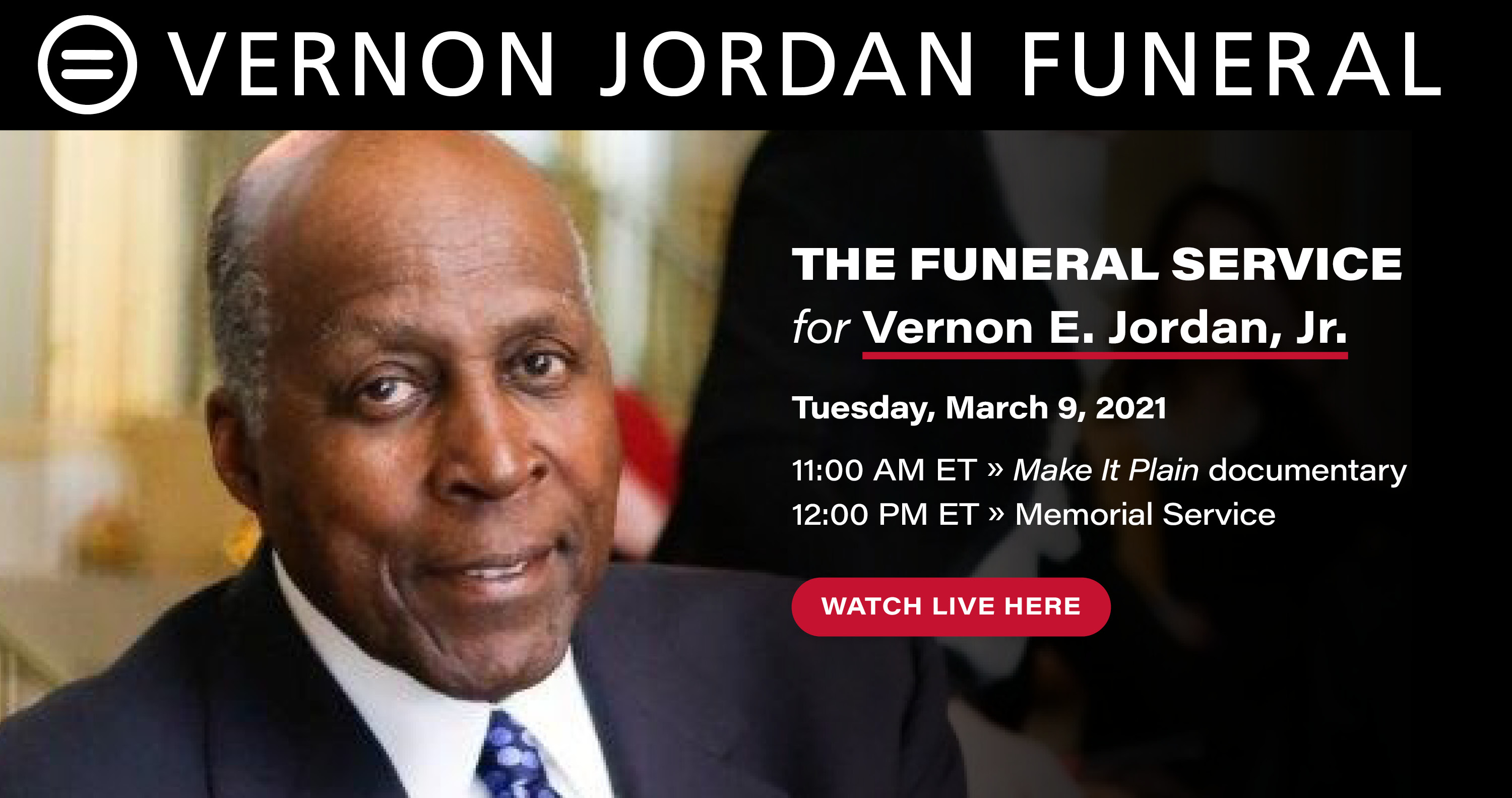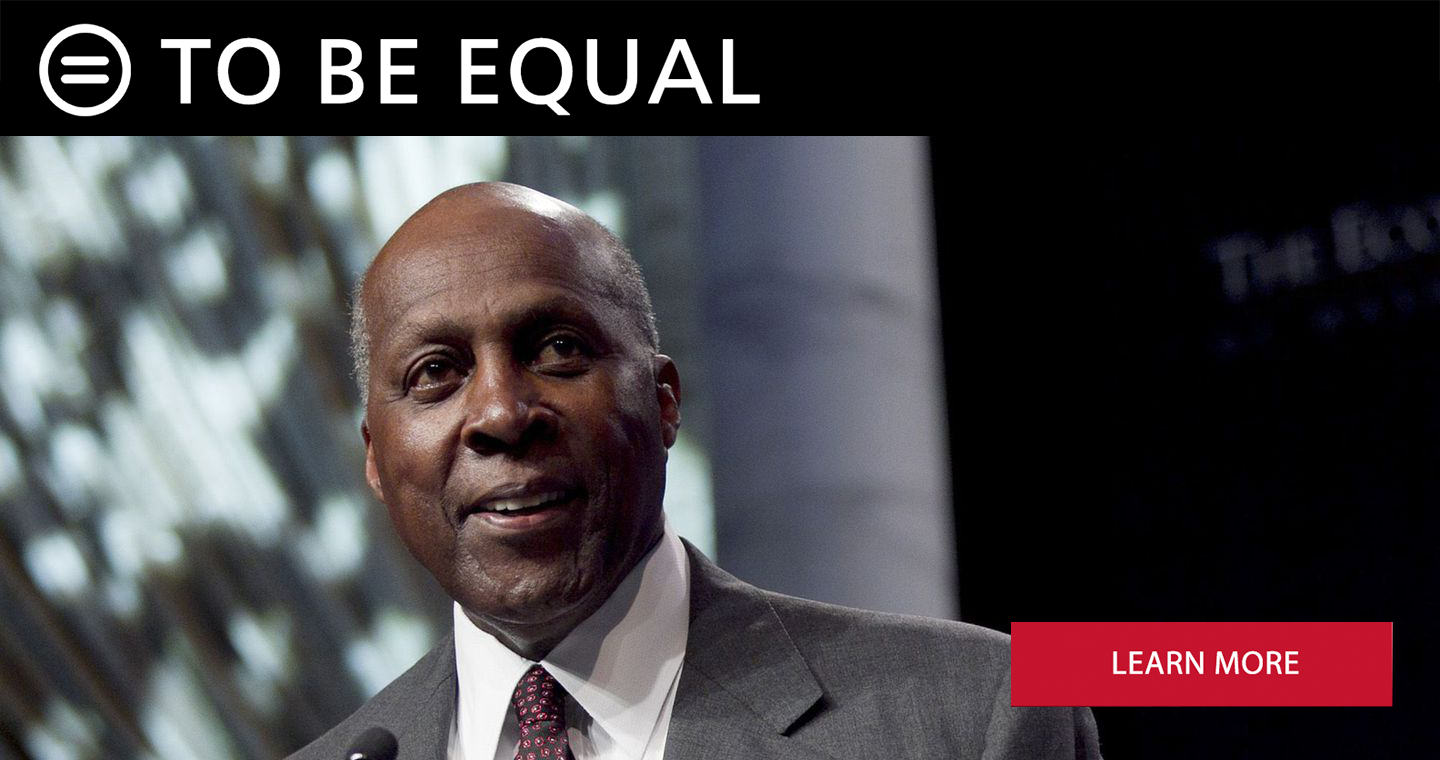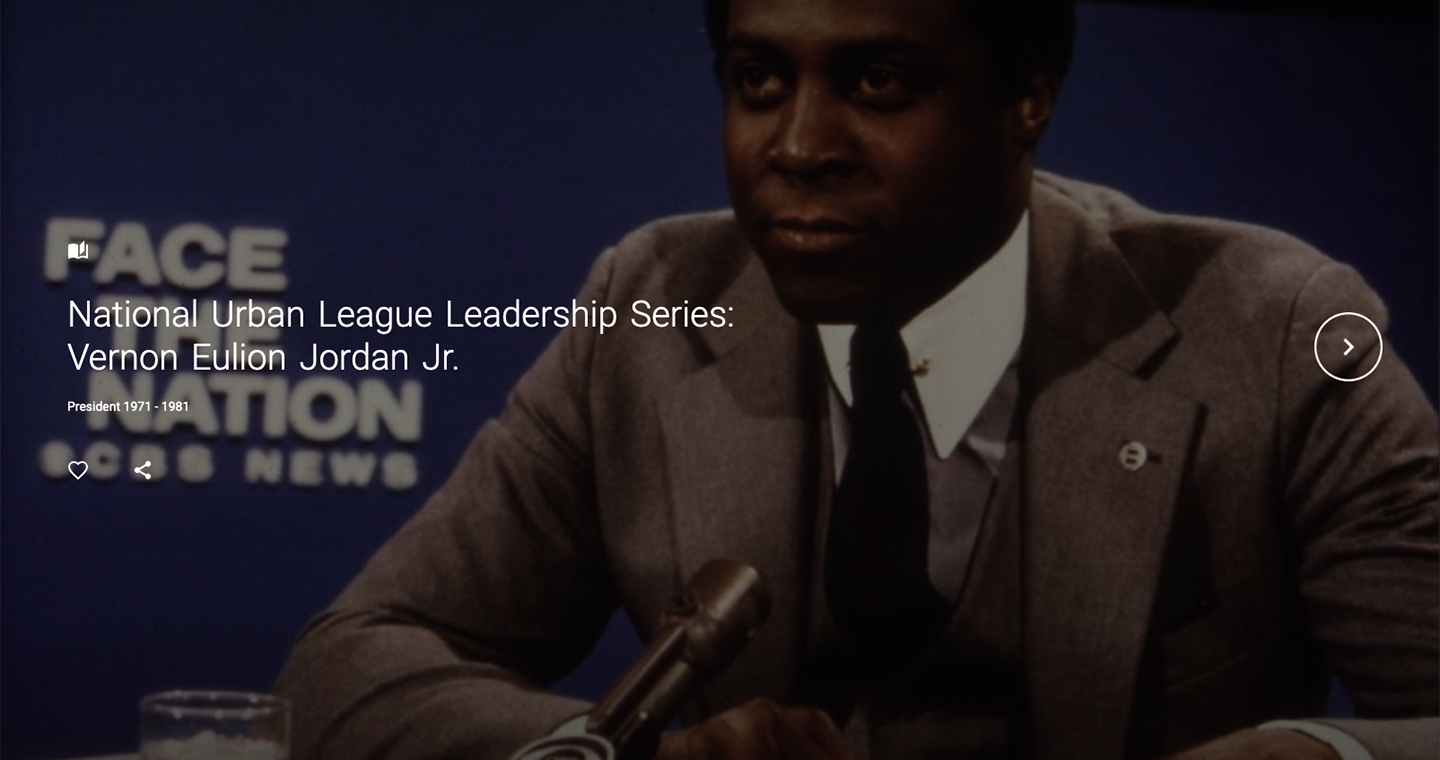Honoring the life and legacy of Vernon E. Jordan, Jr.

Please join the National Urban League, the Jordan family and others whose lives have been touched as we gather virtually to honor his memory. The memorial service will stream live below beginning at 11:00AM ET March 9th.
Below is the schedule of events:
| 11:00am - 12:00pm | Vernon Jordan: Make It Plain documentary |
| 12:00pm - 1:30pm | Memorial Service for Vernon Jordan |
| 1:30pm - 2:30pm | An Evening with Vernon Jordan - (One hour special | Immediately following the service) |
The family would like to thank you for your thoughts and prayers since the passing of their beloved Vernon E. Jordan, Jr. They are strengthened by your kind words, remembrances and support.
If you would like to make a charitable contribution to Howard University’s Vernon E. Jordan, Jr., Esq. Endowed Chair, please click here: Contribution
Vernon Jordan Memorial
Marc Morial Remarks:
"To President and Mrs. Clinton, Vice President Harris.
To Ann, and Vicky, and the extended Jordan Clan.
To my friends Janice, Mercer, and Tony.
I am honored to be here today. And I’m here today on behalf of my late father and mother, who admired, loved, and worked with Vernon Jordan in the 1960s. And it is through them that, at 16 years of age, I met this impressive, this powerful, this authentically Black man.
And I’m here on behalf of my wife and children. My wife who’s covered Vernon on behalf of CBS. My children who know Vernon as the guy with the big house on Martha’s Vineyard.
But I’m here today to bring the prayers of the Urban League family, the National Urban League. Because Vernon Jordan served as our fifth president in the challenging days of the 1970s. And from all across the nation over the last several days we’ve heard from men and women, young and old, who Vernon’s leadership touched, and I’m here today to represent each and every one of them.
John Lewis, C. T. Vivian, Hank Aaron, Cicely Tyson, and now Vernon Jordan have been called to traverse the stairway to heaven. And why do we love Vernon Jordan so much? Because he was bold, he was blunt, he was funny, he was smart. He was wise, he was authentically Black, and he could cuss.
But he cussed with melody, with harmony, and with rhythm. That’s the Vernon we know, and the Vernon we love.
But as we love Vernon, how should we remember Vernon Jordan? His wonderful, and powerful accomplishments, from Civil Rights to the board rooms, from K Street to Wall Street. We can remember his 80+ honorary degrees. But I think what we have heard today is that we should remember Vernon Jordan as a man for others. A man who dedicated his life, in many ways. He was a man for others in 1961 when he walked those two students into a previously segregated University of Georgia. He was a man for others when he steered the voting – the voter education project, the United Negro College Fund, and became president of the National Urban League, all before he reached the age of 35. And as a man for others at the National Urban League, he took us to the pinnacle in work force, in job training.
He created the State of Black America report when he heard President Ford give his State of the Union address, and Senator Edmund Muskie, the Democratic response, and never once – never once mentioned urban America, or Black America, or poverty, or civil rights. And Vernon’s exact words, excuse me in the presence of the Lord, was “I’ll create my own damn report.” And the State of Black America was born.
As president of the National Urban League he ushered in a new generation of activist leaders at the local level, and his influence remains with us today.
But he wasn’t done. He wasn’t done. He continued to be a man for others, as he joined the prestigious law firm, as he joined the Lazard Investment banking firm. And as you’ve heard from Ursula and Ken and Ms. Coopersmith, everywhere he went, he was unselfish in giving of his time, his energy, and his wisdom. A man for others. And everywhere he went, while he may have been the first, he didn’t go there alone. And he may have been the one that opened the door, but he made sure it didn’t close behind him, so that successive generations of so many of us could walk through those doors.
Vernon Jordan must be remembered, for yes, being that celebrity, for yes, being that beautiful man, for yes, being that witty person, for yes, being that brilliant advisor. But he must be remembered as a man for others. And as a man for others – as a man for others, his wisdom, his wit, is now imbued in each and every one of us. He would say, “My dear friends, don’t mourn me, celebrate my life.” He would say, “My dear friends, make sure you carry on.”
So today I stand here to say, Vernon, our friend, our mentor, our brother, our leader, our king, may you rest in peace, and rest in power."
National Urban League Grieves the Passing of Former President Vernon Jordan
By National Urban League
Published 12 PM EST, Mon Mar 5, 2021

"Black people today, for all our righteous anger and forceful dissent, still believe in the American Dream. And we must, in this year of doubt and confusion, remind a forgetting nation that this land is ours, too. This nation too often forgets that this land is sprinkled with our sweat, watered with our tears, and fertilized with our blood … And so it is Black people who, by our belief in the ideals of American democracy, can help this nation to overcome its crisis of spirt and enter a new era of hope and fulfillment.” – Vernon E. Jordan, National Urban League Conference Keynote Address, 2010
The nation has lost one of its greatest champions of racial and economic justice. Vernon E. Jordan, who served as Executive Director of the National Urban League from 1971 to 1981, was a transformational leader who brought the movement into a new era. He was a personal mentor and dear friend. His passing leaves a tremendous void that can never be filled.
Jordan assumed leadership of the National Urban League at a crucial moment in history, after the passage of the Civil Rights Act, the Voting Rights Act, and the Fair Housing Act. The broad, legal goals of the 20th Century Civil Rights Movement had been achieved. His mission, as he saw it, was to empower Black Americans to realize the promise of these victories. In his words, “Black people today can check into any hotel in America, but most do not have the wherewithal to check out.”
The exceptional poise and dignity with which he conducted himself was just as striking as his impressive height. He was born into an era when Black men in his native Georgia were routinely addressed as “Boy; ” his mother pointedly nicknamed him “Man.” He honored her faith in him with his bravery, his grace, his brilliance, and his excellence.
As a child, he heard Thurgood Marshall speak at an NAACP meeting and immediately told his father, “I’m going to be a lawyer like Thurgood Marshall.”
Graduating in 1953 from the same segregated Atlanta high school that Martin Luther King, Jr., had attended years before, Jordan defied expectations by enrolling at the virtually all-white DePauw University in Indiana. It was the beginning of a life spent challenging the boundaries of where Black people belonged.
The title of his memoir, Vernon Can Read, was inspired by an incident that occurred when he was a college student with a summer job as a chauffeur. He would spend his breaks reading, which amazed his employer.
He entered Howard Law School at the height of the desegregation movement and quickly took his place on the front lines. He went to work for civil rights attorney Donald Hollowell, which successfully sued the University of Georgia for racial discrimination in its admission policies. He personally escorted the first two Black students, Charlayne Hunter and Hamilton E. Holmes, past a mob of howling white protesters to the university admissions office.
“There were no thoughts about being afraid,” he later said. This is what I went to law school to do -- and I'm now here, doing it."
Before joining the National Urban League, Jordan served as the Georgia field director for the NAACP, director of the Voter Education Project of the Southern Regional Council, and executive director of the United Negro College Fund.
He was recruited to lead the League after the unexpected drowning of Whitney M. Young in Nigeria; Martin Luther King, Jr., had died just three years earlier. “It was a challenge to be walking in his shoes,” he said. “After the losses of King and Young, and the turn towards conservatism that really began in the seventies, both the League and Black America were in a state of sadness, of disappointment.”
After hearing no mention of the crisis facing Black Americans in either President Gerald Ford’s State of the Union Address or Sen. Edmund Muskie’s response, Jordan produced the first State of Black America® report in 1976.
The National Urban League would not be where it is today without Vernon Jordan. We have lost more than a leader; we have lost a brother. We send our prayers to his wife, Ann, his daughter, Vickee, and his entire family and extended family as we rededicate our commitment to his vision of justice and equality.
For more on Vernon Jordan's life and tenure at the National Urban League, please click below:

###
9TBE 3/4/21 ▪ 80 Pine Street ▪ New York, NY 10005 ▪ (212) 558-5300
Connect with the National Urban League
Facebook: https://www.facebook.com/NatUrbanLeague
Twitter: https://twitter.com/naturbanleague
Instagram: https://www.instagram.com/naturbanleague
Website: https://www.NUL.org
Newsletter: http://bit.ly/SubscribeNUL
YouTube: http://bit.ly/YTSubNUL

